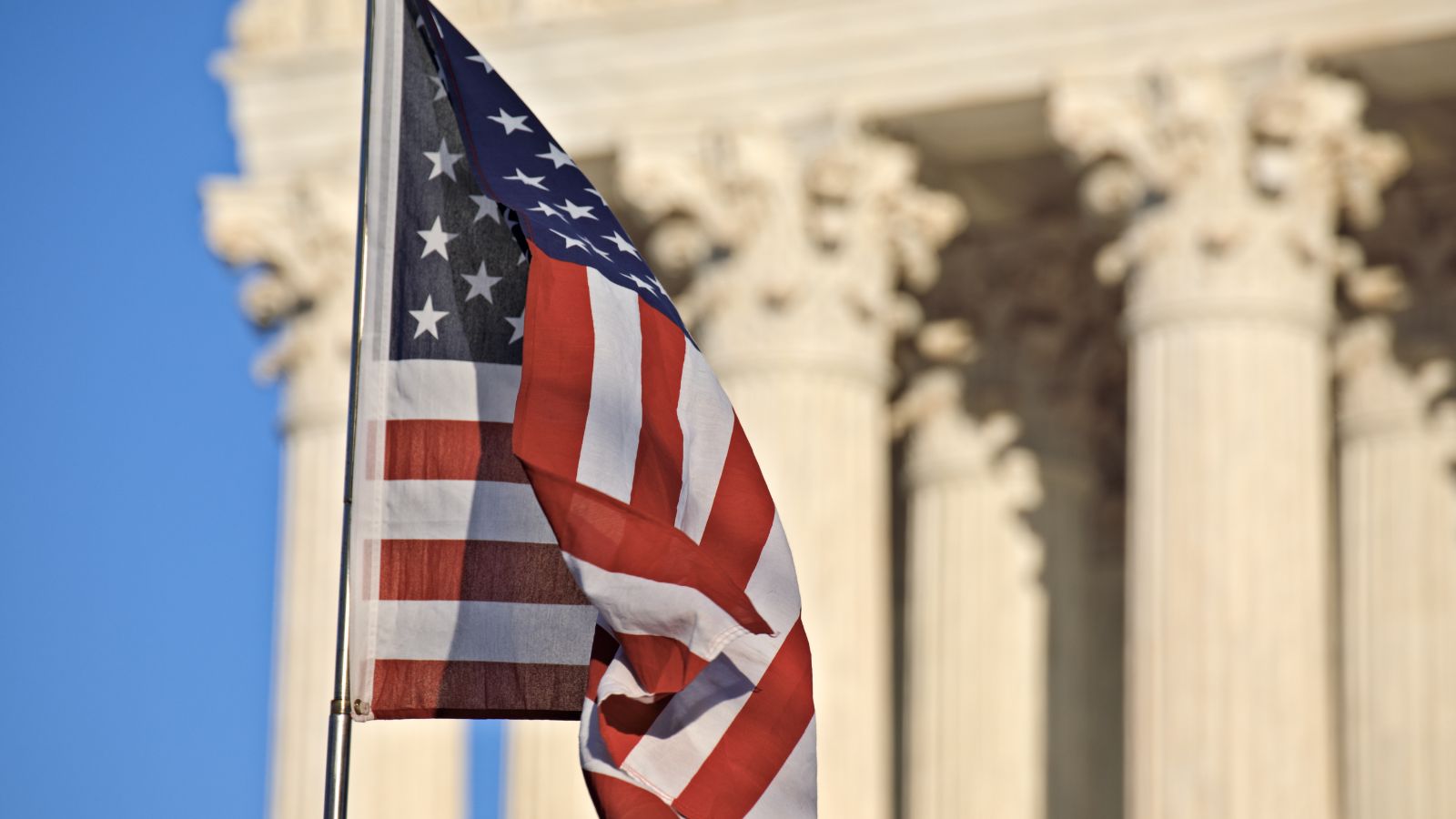Traditionally seen as the bedrock of American society, these values appear to be fading or changing in their importance to the American public. This shift can be attributed to various factors, including political division, economic challenges, and social changes.
Patriotism

Americans are known for their pride in their country, with American flags everywhere. The importance of patriotism has significantly decreased, with only 38% of Americans considering it very important, down from 70% in 1998. It appears that most of the country’s citizens now believe America is just like anywhere else.
Tolerance

The United States may not have been founded on complete tolerance, but the concept was still there, and modern Americans would like to think it has been a core value. The polarizing nature of the American political climate has shown less tolerance of other people on both sides of the fence.
Community Involvement

This is the one value that has remained relatively high over the past quarter-century. In fact, belief in the importance of community involvement increased significantly between 1998 and 2019. However, the percentage of Americans who believe community involvement is essential has plummeted in recent years. The COVID-19 pandemic has created newfound fears of working closely with our fellow citizens and a turn toward online interactions.
Having Children

Having children was once a staple of the American Dream, but times have shifted away from the traditional family. Millennials have fewer kids than previous generations, which could drag down economic growth for over a decade. DINKs—couples who live on double income with no kids—are using the money that would have been spent on childcare to splurge on vacations, boats, and other luxuries.
Religion

Millennials view the Church as too focused on power and money, too involved in politics, or that they are too focused on their theological rules and thus have become exclusive to specific groups of people, such as the LGBTQ+ community. The secularizing shifts evident in American society so far in the 21st century show no signs of slowing.
Hard Work

The work-first idea of Americans is starting to fade away. The younger generations are focusing more on work-life balance and having a sense of purpose in their careers instead of just working long hours for the sake of a corporation.
Education

The perception of the U.S. as an educational superpower is fading, with concerns about the value of a college degree. High education costs and doubts about the return on investment are critical factors in enrollment falling by 1.4 million since the pandemic began, with no end in sight with the waning of the pandemic. A majority of Americans now consider a college degree a questionable investment.
Equality

While not directly measured, the commitment to equality faces challenges amid growing disparities. Economic and social inequalities challenge the realization of this value. One example was watching Roe v. Wade get overturned, which left many women feeling their equality stripped away.
Freedom

The U.S. was founded on the concept of freedom. The value of freedom remains central, but its interpretation and implications are increasingly contested. Political and social debates over rights and liberties have many wondering how free they really are.
Democracy

Concerns about the health of American democracy are growing. Political polarization and challenges to democratic norms contribute to these concerns. Tom Pepinsky, scholar of comparative politics at Cornell, says, “Most Americans conceptualize a hypothetical end of American democracy in apocalyptic terms… You know that you are no longer living in a democracy because the elections in which you are participating no longer can yield political change.”
Diversity

The value placed on diversity is contested, with differing views across political and demographic lines. Concepts such as affirmative action are heavily debated. “[Americans] worry that racial preferences stigmatize beneficiaries, breed resentment, and encourage everyone—including whites—to identify by race,” according to the Economist. People have noticed a lack of attempts to diversify universities based on class and economic standing.
Law & Order

Attitudes toward law and order are evolving, especially in the context of social justice movements. Movements like Black Lives Matter and Defund the Police have people questioning the justice system as it stands now in the U.S.
Materialism

Economic challenges and changing societal values may contribute to a greater focus on financial success. However, millennials focus on fewer but more meaningful possessions and don’t buy houses; they spend their money on experiences. The value of materialism may swing back with the Gen Zers.
Monogamy

Polyamory means “multiple loves,” a word coined in the late 20th century with Greek and Latin roots. About one-third of polled American singles say they’ve had a consensually non-monogamous relationship; societal acceptance of diverse relationship models influences this trend. “During times of political strife and unease—war, climate change, economic turbulence (and of course, a pandemic)—people tend to question other institutions as well,” says USA Today.
Rationalism

The proliferation of social media and political polarization may undermine rational discourse. The commitment to rationalism and empirical evidence faces challenges in an era of misinformation. People lean heavily into their beliefs and the resources that support them instead of unbiased facts.
The American Dream

The American Dream of achieving anything, no matter where you come from, psychically or economically, is more challenging for people to believe. The odds of a child earning more than his or her parents are declining. The Johnson Scholarship Foundation says, “In 1940, there was a 90% chance that an American child would earn more than his or her parents.” However, 40 years later, the chances dropped to 50/50. We are still waiting to see how the tides turn for current generations.
Humanitarianism

National and global crises and political rhetoric can impact the commitment to humanitarianism. Inward-looking policies and attitudes may challenge the emphasis on humanitarian values.
Chastity

Attitudes toward chastity and sexual morals have evolved with changing social norms. Greater acceptance of diverse sexual identities and relationships influences this shift. Finding people who choose to remain chaste until they are married is increasingly rare in modern society.
Read More: 20 Things We Did When We Were Young That We Regret Now

It’s easy to say hindsight is 20/20, but what advice would you really give your younger self? Here are 20 things that most people did when they were young that they regret today.
20 Things We Did When We Were Young That We Regret Now
17 Things That Used to Be Highly Respected But Isn’t Anymore

Many things in the world used to be well-respected before turning into complete jokes for various reasons. An internet survey recently asked people, “What is something that was once highly respected but is now a complete joke?” Here are the top 20 answers:
17 Things That Used to Be Highly Respected But Isn’t Anymore
17 Fairy Tales That Are Now Considered Racist

While fairy tales weave magical narratives that span generations, many emerge from historical and cultural contexts tinged with biases. Hiding in many of these tales, racial undertones can be found. Let’s look at 17 fairy tales that have deeper implications.
17 Fairy Tales That Are Now Considered Racist
17 Things Society Can No Longer Do Because Gen Z Said So

Gen Z, our digital-native, trendsetting generation, is making waves in the cultural sea, steering the ship of societal norms in fresh and unexpected directions. As they charter new territories, there are certain practices they’d rather we say goodbye to. Curious? Let’s take a look at 17 things the rest of us can no longer do because Gen Z said so.
17 Things Society Can No Longer Do Because Gen Z Said So
18 Common Traits Found in Adults Who Had Unhappy Childhoods

Being a parent is a hard job, so even those who are truly trying their best will often miss the mark on creating the best environment for their children. Unfortunately, this means that many of us grow up with far-from-perfect childhoods that affect us into adulthood. Here are 18 common traits found in adults who had unhappy childhoods.

